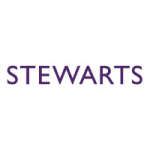Clive Zietman considers the big trends likely to shape the commercial disputes scene
If I possessed a crystal ball, I would be writing this on a sun-drenched beach somewhere having won the lottery several times in a row. Sadly, I still have to work for a living and that lottery win remains elusive. Despite the huge difficulties in predicting the future, some trends have emerged in litigation practice over the last few years that look set to continue. This article picks up on a few of those trends and contains input from the specialist lawyers in some of my firm’s practice groups about what to look out for in the coming years.
Brexit
The most obvious and immediate issue is Brexit: what form it takes and when it happens (or not). At the time of writing the first exit date has passed and the situation remains fluid. Accurately predicting what will happen is beyond the powers of the most magical crystal ball. We have been working with several clients to assess their litigation risk under different scenarios. Our experience as litigation specialists suggests that any legal and political uncertainty, whether short or long term, will result in economic disruption. This is likely to force parties to look to the courts to resolve disputes and potentially to interpret new or existing legislation in the post-Brexit legal landscape. Force majeure and frustration issues are the most probable areas for immediate disputes.
London as a legal centre
London (with the Business and Property Courts (including the Commercial Court) and London-seated arbitrations) has long been one of the most important hubs for international legal services and dispute resolution. The 2018 Commercial Courts Report revealed a continuing upward trend, with the number of international commercial cases heard rising by 7% and the number of litigants by 22%. However, the development of specialist commercial courts in other jurisdictions, often specifically designed to compete with London, means that London’s position as a litigation centre is by no means secure.
Provided the London courts continue to demonstrate their skill in resolving the most complex global disputes, recruit and retain the highest calibre of judges from across the legal professions and embrace new technologies they will remain at the heart of international litigation. There is, however, no room for complacency and proper funding and support from government are essential.
Legal technology
The technological advances continue to change the commercial disputes landscape. More sophisticated analytical digital tools are becoming available to litigators as the volume of electronic documents involved in litigation continues to dramatically increase. This is an issue which courts and parties continue to grapple with. The search for a balance that ensures relevant evidence is provided while costs of review and disclosure remain proportionate looks set to continue into 2020 and beyond. There is little doubt that radical change is inevitable.

‘There is no room for complacency regarding London as a legal centre and proper funding and support from government are essential.’
Costs
The courts, rightly, continue to focus on the cost of litigation in this country. It is vital that London remains a leading centre for global litigation. There is a case for a menu of costs options: cost-capping orders for certain types of cases; effective costs budgeting and controls (particularly for smaller scale matters); freedom for parties to obtain the legal services they wish at a price they want to pay when engaging in bet-the-ranch litigation. There is a growing appetite among sophisticated clients for contingency arrangements of all kinds, where once this was only the preserve of impoverished individuals.
Data
Data, its use, misuse, loss and theft, is likely to drive an increase in disputes. As more and more parts of our daily lives are dealt with electronically, the value of that data to fraudsters increases and the odds of security breaches, whether accidental or intentional, also appear to increase. Law firms are increasingly aware of the data they hold and are beginning to work both internally and with third parties to use that data to benefit their clients. Costs, that hard-to-predict feature of litigation, is one area where we may see data sets producing more accurate estimates for clients and more real-time information.
Turning now to focus on a selection of our practice areas: fraud, securities, competition, tax and trusts:
Fraud
‘The courts, rightly, continue to focus on the cost of litigation in this country. It is vital that London remains a leading centre for global litigation.’
English courts continue to adapt to new challenges posed by fraudsters. Cryptocurrencies are an interesting case in point. The technology is developing at a pace that is not matched by new rules and regulations, and is being exploited by fraudsters. Where regulations do not yet exist, the English courts are stepping in with innovative approaches to facilitate asset tracing. For example, 2018 saw the first freezing orders made in relation to cryptocurrencies and blockchain. It also saw the first worldwide freezing order against ‘persons unknown’ in a cyber fraud case, enabling defendants to be identified and wide-scale disclosure against third-party banks. The birth of the Unexplained Wealth Order (UWO) was promised as a new tool available to law enforcement in the context of civil asset recovery, aimed squarely at tainted assets. While we have not yet seen UWOs used frequently, they are likely to gain momentum in years to come, not least as geopolitical pressures touch the UK’s economic interests. These orders may also provide a platform for increased collaboration between law enforcement and civil practitioners, particularly where parallel investigations and litigation are conducted by the state and victim.
Securities litigation
As society becomes more connected and the world becomes a smaller place, the number and geographical diversity of people or institutions affected by any one incident grows. Group litigation is increasing, no more so than in securities disputes. Shareholders bringing claims against corporates for failures affecting the value of their shareholdings is not new in the US and in a number of other jurisdictions including the Netherlands and Japan. Traditionally, England and Wales have fallen behind for two main reasons:
(i) until the implementation of the Financial Services and Markets Act 2000 (FSMA) it was significantly more difficult for a shareholder to sue a public limited company for false or misleading statements made in a prospectus or for other company announcements or publications because of the longstanding common law position that a duty of care is only owed where advice is given for the particular purpose of the recipient relying on it (Caparo v Dickman [1990] 2 AC 605); and
(ii) English costs rules (the loser pays the winner’s costs) have historically dissuaded individuals or single institutions from issuing claims against large PLCs that could swamp them in adverse costs liability.
‘Taxation will be fertile ground for commercial disputes. HMRC is more determined than ever to recover money and take the fight to court if it is on arguable ground.’
Over the recent past, the availability of the statutory causes of action (s90 and s90A FSMA) and the court’s more flexible approach to funding arrangements have made it legally and commercially possible for shareholders to seek redress and hold companies to account. This gave rise to the RBS rights issue litigation, the Lloyds/HBOS litigation and the Tesco litigation. A significant stumbling block to the progress of securities litigation in this jurisdiction is the availability of appropriate multiple claimant case management tools. England and Wales do not have an ‘opt-out’ class action system for this type of litigation. This has prevented otherwise viable securities litigation cases from being pursued. For a claimant to be bound by or benefit from a decision it must opt-in to litigation by issuing an individual claim, at a cost. That claim might then be managed within the terms of a group litigation order, a representative action or through the exercise of the court’s normal discretionary case management powers. In our experience from the RBS rights issue litigation, the Tesco litigation and the Ingenious litigation, none of these tools is perfect. The courts have, however, introduced collective proceedings orders (CPOs) in certain representative actions commenced in the Competition Appeal Tribunal (CAT) pursuant to the Consumer Rights Act 2015. While initial applications for certification of classes in this context have been unsuccessful, the judgment in Merricks v Mastercard [2017] CAT 16 provided useful guidance as to what is required to achieve a successful CPO and more applications are now being filed. As this jurisdiction matures, it is possible that it may be extended to other collective redress claims such as securities actions, especially if there is an anti-competitive aspect to the alleged wrongdoing.
Competition litigation
Following the landmark Court of Appeal decision in iiyama (UK) v Samsung Electronics Co [2018] EWCA Civ 220 and the interim judgment in Vattenfall v Prysmian and NKT [2018] EWHC 1694 (Ch) concerning jurisdiction challenges by defendant cartelists (in which we acted for the successful claimants in both matters) and clarification of the law in this area, it has generally been accepted that the age of early jurisdiction spats between parties in competition damages claims is over. However, given the uncertainties around Brexit and the impact on Brussels Recast after exit day, we may see an increase in the number of defendants seeking to bring such challenges in the future.
‘The only thing that seems certain is that the law underpinning our tax regime is unlikely to become simplified any time soon.’
The world will also be watching the outcome of the Supreme Court hearing set down for early 2020, concerning interchange fee claims and the appeals brought by Visa and Mastercard following their defeat in the Court of Appeal in 2018. In a highly unusual move, the Supreme Court has granted permission for the European Commission to intervene at that hearing. There are currently hundreds of interchange fee claims making their way through the English courts and the impact of the Supreme Court’s decision will have far-reaching consequences.
Tax
There is little doubt that taxation will be fertile ground for commercial disputes over the coming years. HMRC is more determined than ever to recover money and take the fight to court if it thinks it is on reasonably arguable ground. The highly political and fraught subject of taxation on digital giants is particularly contentious but other battlegrounds abound. There are a number of manufacturers and service providers with massive disputes about VAT in circumstances where different outcomes can often turn on the most labyrinthine and subtle interpretations of statutes. Yet again the twists and turns of Brexit could create all sorts of hitherto unforeseen areas of uncertainty. The only thing that seems certain is that the law underpinning our tax regime is unlikely to become radically simplified any time soon. That can only mean that the scope for disagreement, especially when huge sums are involved, is bound to increase.
Trusts
Although trusts are known primarily as a means of structuring private wealth, a number of recent commercial cases have thrown a spotlight on the role they play in commercial litigation. An example is where a party is seeking to obtain freezing orders or to enforce against assets held in trust. Decisions such as that in Mezhprom Bank v Pugachev show that the English courts are astute in preventing parties from using trusts as a means of evading liabilities. An understanding of trusts is also essential to any tracing claim, where one of the key equitable remedies available is that of the constructive trust. Another doctrine that is traditionally associated with trusts litigation, but which has increasingly featured in the commercial sphere, is that of fiduciary obligations. Recent cases involving joint ventures have seen the English courts prepared to find fiduciary duties owed between parties to arm’s-length commercial transactions.
Crystal ball disclaimer
It was Abraham Lincoln who said: ‘The best way to predict the future is to create it.’ It may well be that my younger colleagues and others in the legal profession will shape the future in some ways. In truth, however, if the social, economic and political future for this country is as stormy over the next decade as many have predicted it will be, these are the factors that will inevitably give rise to more litigation across a wide range of disciplines. The chances of litigators having little to do in times of radical change are slim. My plans to spend time on that sun-drenched beach will remain on hold for a while.
Clive Zietman, head of commercial litigation, Stewarts.













